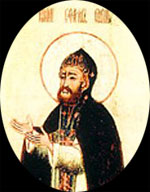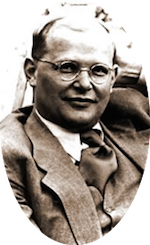Bioethics and the Catholic Church: 21 Questions for Janet E. Smith
by Sean Salai, S.J. (America Magazine). «It is not too facile to say that legislation is either a matter of legislating morality or of legislating immorality; there can be no third option. Either abortion is moral or immoral; it is not like the choice between vanilla or chocolate ice cream. One has to take a stand; does abortion take a human life or does it not? The problem is that our culture no longer believes that it has any means to determine what is true and what is false...Since our culture is thoroughly skeptical and relativistic, the ability to make strong arguments does not translate into persuasive arguments.»
The Progressive Roots of the Pro-Life Movement
by Emma Green (The Atlantic). «‹Too many historians took for granted that the pro-life movement emerged as a backlash against feminism, and/or as a backlash against the Supreme Court’s decision in 1973,› Williams said in an interview. Many of today’s most ardent anti-abortion activists likely identify with this kind of sexual conservatism and resentment toward a meddling government. But in many ways, their political convictions are counter to the original aspirations of the movement. As Williams writes in his book, ‹The pro-life movement that we have always labeled ‹conservative› was at one time much more deeply rooted in the liberal rights-based values than we might have suspected.›»
Educating Father Abraham: The Meaning of Wife
by Leon R. Kass (First Things). «It is not exactly traditional to speak about the education of Abraham. Pious tales of the patriarch regard him as a precocious monotheist even before God calls him, a man who smashed his father’s idols, a man who sprang forth fully pious and knowledgeable about the ways of God. But, in my view, a careful reading of the biblical text shows otherwise: Abraham indeed goes to school, God Himself is his major teacher, and Abraham’s adventures constitute his education, right up to his final exam, the binding of Isaac.»
Saladin and the Problem of the Counter-Crusade in Medieval Europe
by Jay Rubenstein (Historically Speaking) «Introduction: In 1105 a Muslim Damascene scholar named Ali ibn Tahir al-Sulami argued in a treatise that Muslims needed to learn anew the practice of jihad. A wicked race of unbelievers, polytheistic Christians who insisted on worshipping three gods instead of one, was waging war—their own version of jihad—against Islam. After centuries of wrangling, the faithful needed finally to set aside differences and together drive out the invaders.»
Who Are Noahides, and Why Aren’t They Christians Anymore?
by David Mills (Aleteia) «Noahides, reports the Jewish web magazine Tablet, ‹struggle to stand up for their beliefs despite being surrounded by Christian families and friends.› It’s a fascinating story, in the odd byways of American religion departments, but also a challenge, because according to the writer, they’re inevitably ex-Christians. Some are ex-Catholics. ‹Their feelings on Christianity and Jesus range from respect of the ‹all religions have something to offer› variety to palpable disdain. They’ve given up what they consider idol worship to follow Jewish theology.›»
A Biblical Warning on the Nature of Government
by Msgr. Charles Pope (National Catholic Register) «Samuel’s warnings were valid then and are still so now. It seems clear enough that God has set forth the family (nuclear and extended) as the primary center of care, rather than a centralized authority (which too easily expands; becomes intrusive; and further breaks down the family, church, and community, replacing them with itself). Subsidiarity is lost, and as Samuel says above, He will take the best...»
Subscribe to:
Post Comments (Atom)


















No comments:
Post a Comment